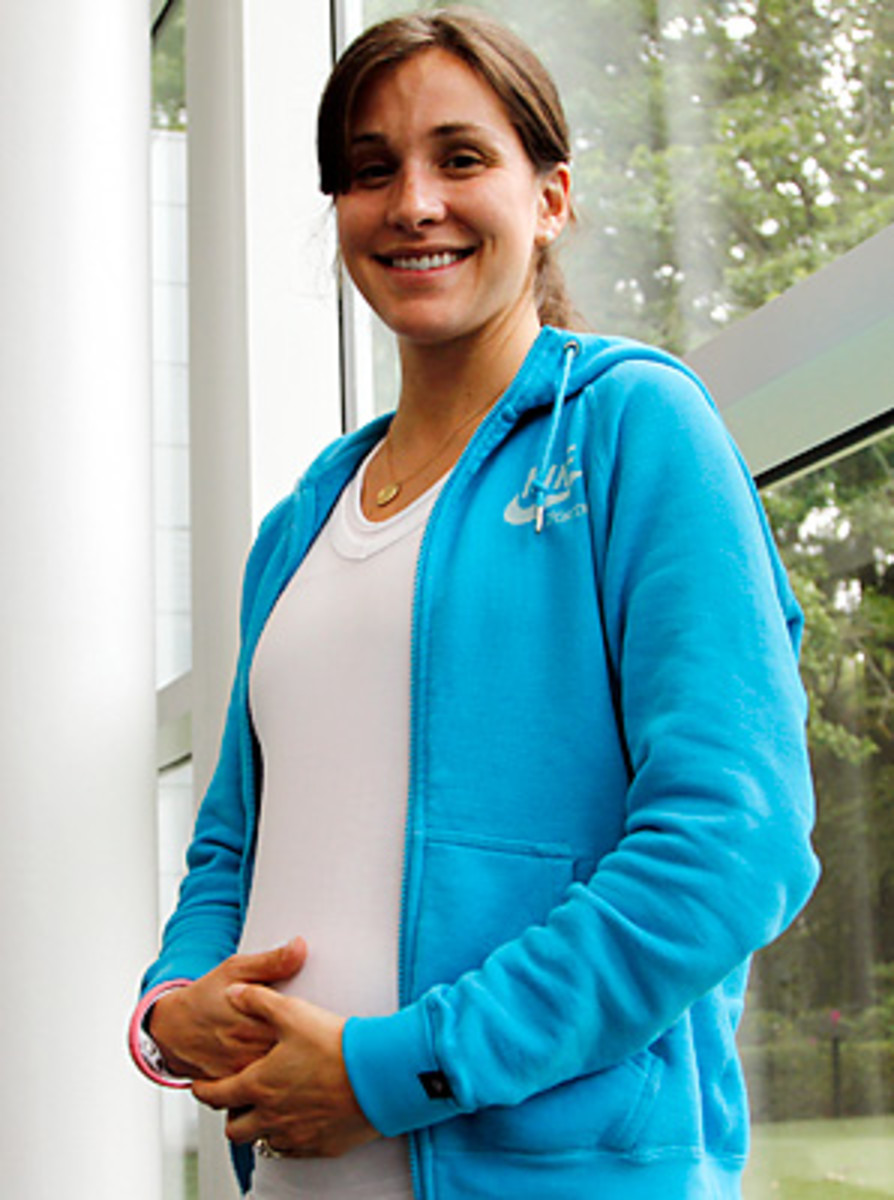Marathoners Goucher, Radcliffe run toward pregnancy due dates
Even if she could have a child, one doctor told her, "the childbirth will be tough because your muscles are too firm and taut," recalled Switzer, who in 1967 became the first woman to officially complete the Boston Marathon, (but not before a race official tried to body slam her off the course).
So it was fitting Saturday that Switzer was holding one end of the finishing tape at the 39th New York Mini 10k, the country's oldest all-female road race, with the other end held by Kara Goucher, America's top female marathoner who is pregnant and still running 60 to 80 miles a week and doing light track workouts. After 20-year-old Kenyan Linet Masai broke the tape in 30:48, Goucher, who decided not to "fun run" the 10k because of a back injury, perfected the symbolism by jumping in to jog the last few meters with her friend Paula Radcliffe, the British world record holder in the marathon who is also pregnant. Goucher and Radcliffe have been training together -- in a scaled-down version of their normal regimens -- and both are due to give birth on September 29th . Both Goucher and Radcliffe planned their pregnancies to give them plenty of time to return to form for the 2012 Olympics.
Radcliffe, a three-time winner of the New York City Marathon, is known for leading races from gun to tape, but "my priorities were different today," she said, after jogging to a 44:36, (her 10k road best is 30:21). Radcliffe confessed after the race that she felt a momentary "what's going on here?" pang as she watched the professional field run away at the start. But as soon as the race started Radcliffe was beaming -- even after a twisted ankle courtesy of a Central Park pothole -- and dispensing words of encouragement to some of the other 5,000 or so women who participated.
Goucher's child will be her first, but Radcliffe trained through her prior pregnancy three-and-a-half years ago, scaling back to every-other-day runs in month nine. Despite the kind of stigma that Switzer faced, recent research suggests that monitored exercise is good not only for the pregnant mother but also for the baby. And as far as the impact on the mother's running career, the anecdotal reports are positive. Radcliffe won the New York City Marathon 10 months after giving birth to her first child, Isla. In one of the most famous cases of a postpartum return to competition, Norwegian runner Ingrid Kristiansen won the 1983 Houston Marathon five months after having her first child. The startlingly athletic success of new mothers like Kristiansen even gave birth to the idea of pregnancy as a performance-enhancing drug.
In 1988, at the First Permanent World Conference on Anti-Doping in Sport, "abortion doping" was the prime topic of debate. The scuttlebutt was that East German athletes had gotten pregnant, and then aborted, in order to take advantage of hormone changes during pregnancy. To this day, with no documented attempts, "abortion doping" remains gossip, but there is a kernel of truth in the concept.
One of the many physical transformation that occur in a woman's body to accommodate the new resident is an increase in blood volume, since there are suddenly two people in need of oxygenated blood. Once the baby is born, that extra blood hangs around. Extra red blood cells, as any athlete who has used EPO knows, means extra oxygen to the muscles. This super mom effect, however, is transient, lasting a few weeks or months. A 1991 study at the University of Vermont found that non-athlete women were still pumping slightly more blood than usual three months after giving birth.
Radcliffe said yesterday that she did feel stronger after her first pregnancy, but she attributed it largely to something a little more obvious than a bolstered blood supply.
"You're happier, obviously, because you have a little baby," Radcliffe said. "When I had Isla my life felt more balanced."





